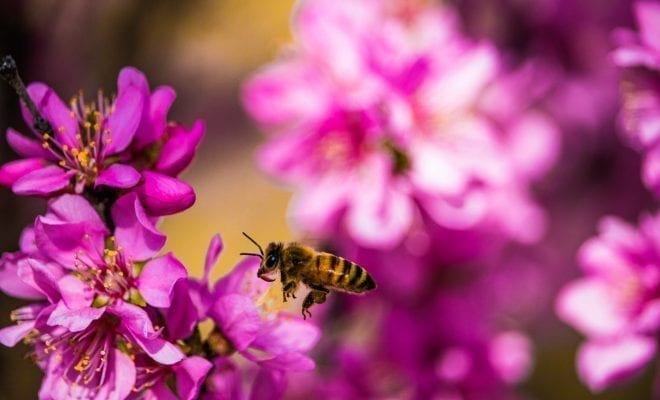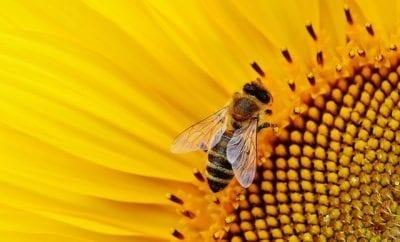
News
Weed Killer May Be To Blame For the Global Die-Off in Honey Bees
A commonly used weed killer could be responsible for the massive die-off of honey bees around the world, according to scientists. The weed killer in question is glyphosate, which appears to destroy the “good” bacteria inside a honey bees gut, leaving them more prone to infection and even death.
 Researchers at the University of Texas at Austin published a study in the journal Proceedings of the National Academy of Sciences hypothesizes that glyphosate can be extremely deadly to the honey bees microbiome. A microbiome refers to the plethora of essential bacteria that populates the inside and outside of living organisms, and is believed to play a vital role in an organism’s health. In the study, researchers urge policymakers to begin implementing better guidelines for the use of glyphosate, as current guidelines dictate that these herbicides are not harmful to bees.
Researchers at the University of Texas at Austin published a study in the journal Proceedings of the National Academy of Sciences hypothesizes that glyphosate can be extremely deadly to the honey bees microbiome. A microbiome refers to the plethora of essential bacteria that populates the inside and outside of living organisms, and is believed to play a vital role in an organism’s health. In the study, researchers urge policymakers to begin implementing better guidelines for the use of glyphosate, as current guidelines dictate that these herbicides are not harmful to bees.
To test whether their hypothesis is true, researchers dosed the insects with glyphosate levels similar to what is found in crops, then after several days, drew DNA samples from the bees’ guts. They found that after three days, the glyphosate had killed off the good bacteria from the bees digestive systems, leaving them much more susceptible to becoming infected with common pathogens that they usually would be able to easily fight off.
In the past year alone, U.S. beekeepers lost 33 percent of their honey bee populations. Beekeepers have also struggled with trying to understand a strange condition known as Colony Collapse Disorder, where the majority of worker bees simply disappear, leaving behind a colony unable to sustain itself, a potential side effect of being poisoned by herbicides.
The United Nations Food and Agriculture Organization has identified bees as one of the best ways to create a sustainable global food supply and help support more sustainable farming. In the U.S. alone, pollinators like honeybees are linked to a market value between $235 and $557 billion each year. Without bees, we would live in a very dull world without access to proper nutrition. We would lose availability of crops and wild plants, which provide essential micronutrients that are extremely important for human diets, along with humans developing a deficiency in important vitamins like iron and vitamin A.



0 comments